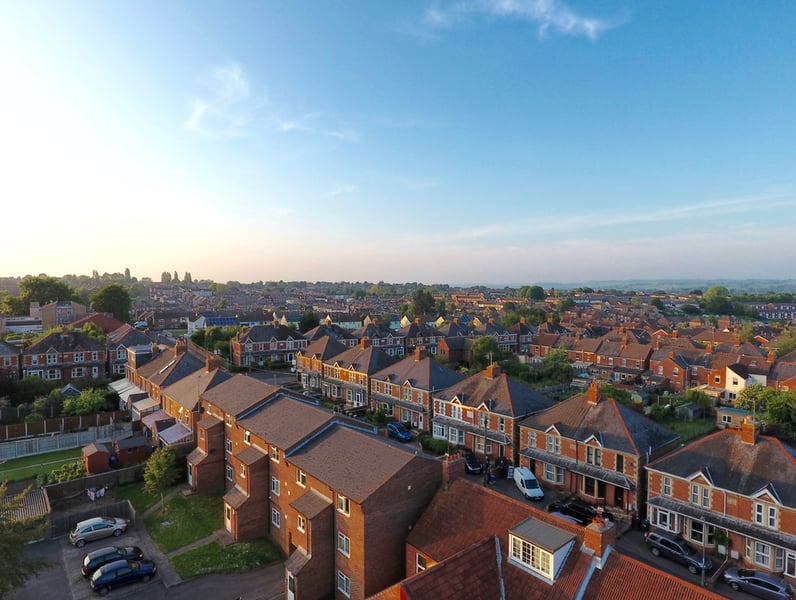In the first quarter, there were 2,440 new first-time buyer mortgages completed in Northern Ireland, 11.4% more year-on-year, 6,760 in Scotland, 4.5% more than in the same quarter in 2018, 9,410 completed in London, up 1.6% year-on-year and 3,450 in Wales, up 1.2% year-on-year.

In Q1 there were more new first-time mortgages completed in London, Northern Ireland, Scotland and Wales, UK Finance data on regional mortgage trends has found.
In the first quarter, there were 2,440 new first-time buyer mortgages completed in Northern Ireland, 11.4% more year-on-year, 6,760 in Scotland, 4.5% more than in the same quarter in 2018, 9,410 completed in London, up 1.6% year-on-year and 3,450 in Wales, up 1.2% year-on-year.
Louisa Sedgwick, director of sales, mortgages, Vida Homeloans, said: “Encouragingly, we have seen the highest number of first-time buyers get on the property ladder in the last 10 years.
“At a time when millennials are facing significant affordability restrictions brokers have been vital in supporting and enabling these new buyers to get that longed for first home. However we are seeing this happening later, as the average age of a first-time buyer in London is currently 33 and 31 in Scotland.
“Lenders have also worked hard with brokers to provide new and innovative solutions that supports first time buyers who would ordinarily be turned away by high street lenders.
“Whether that be recognising the role the Bank of Mum and Dad plays or government schemes such as Help to Buy and Shared Ownership. As an industry, we must continue to support driving generation rent into generation buy.”
In London there were 5,980 new homemover mortgages completed in the first quarter of 2019, 3.7% fewer than in the same quarter in 2018.
There were 14,170 new homeowner remortgages completed in London in the first quarter of 2019, 1.3% fewer than in the same quarter in 2018. This follows a period of strong growth in remortgaging in London during 2018.
In Northern Ireland1,490 new homemover mortgageswerecompleted in the first quarter of 2019, 0.7% fewer than in the same quarter in 2018.
There were 2,820 new homeowner remortgages completed in Northern Ireland in Q1, 24.8% more than in the same quarter in 2018. This is the highest level of remortgaging in Northern Ireland since Q1 2009, when 3,280 remortgages were completed.
Furthermore, 6,620 new homemover mortgageswerecompleted in Scotland Q1, 6.6% year-on-year.
There were 9,670 new homeowner remortgages completed in Scotland in the first quarter of 2019, 18.8% more than in the same quarter in 2018. This is the highest volume of remortgaging in Scotland in a decade, when 9,850 remortgages were completed in the third quarter of 2009.
In Wales there were3,140 new homemover mortgages completed in Wales in the first quarter of 2019, 1% more than in the same quarter in 2018.
There were 4,810 new homeowner remortgages completed in Wales in Q1 2019, 0.2% fewer than in the same quarter in 2018. This follows a period of strong growth in remortgaging in Wales during 2018.
John Phillips, national operations director, Just Mortgages and Spicerhaart, added: “First time buyer mortgages are up across the UK for quarter one, with the biggest hike in Northern Ireland, which saw a rise of 11.4%.
“Homemover mortgages were down in London and Northern Ireland but actually saw a modest rise in Wales, of 1%, while in Scotland, they were up 6.6 per cent.
“Remortgages were up significantly in Scotland and Northern Ireland, were fairly steady in Wales (a drop of just 0.2%) while in London, remortgage activity was down 1.3%.
“While there are a couple of little anomalies, these figures are pretty much what we have been seeing for the past 18 months or so with first-time buyers holding up the purchase market, and the wider market being remortgage activity.
“Yes, there is a bit more action in terms of homemovers in Scotland, and I think this is because there is a bit of a north south divide at the moment with people in the north of England and Scotland feeling less close to the political and economic uncertainty being felt in London, but overall, the picture is what I’d expect to see, and until all this uncertainty is over, I don’t think this is going to change anytime soon.”



